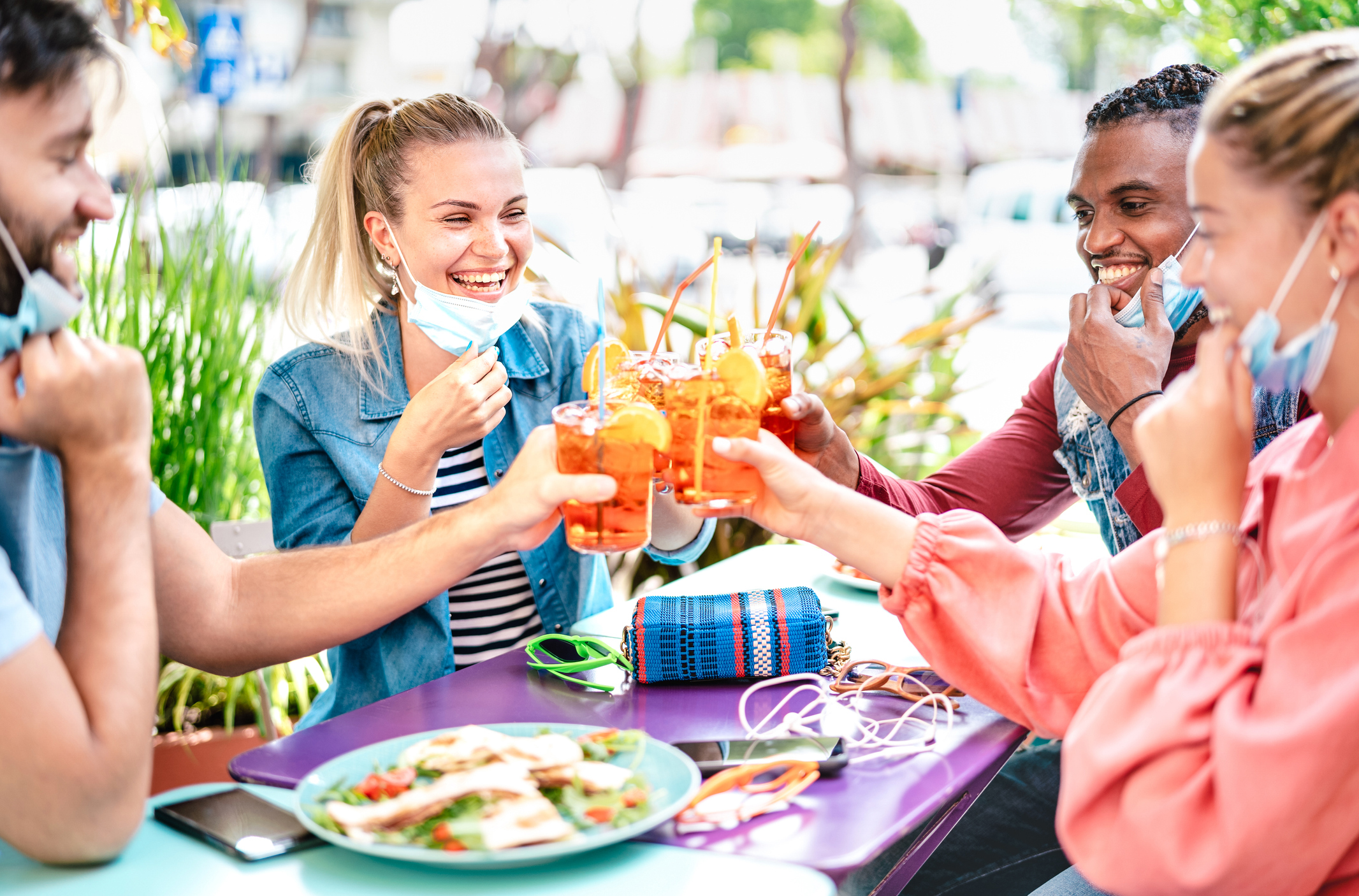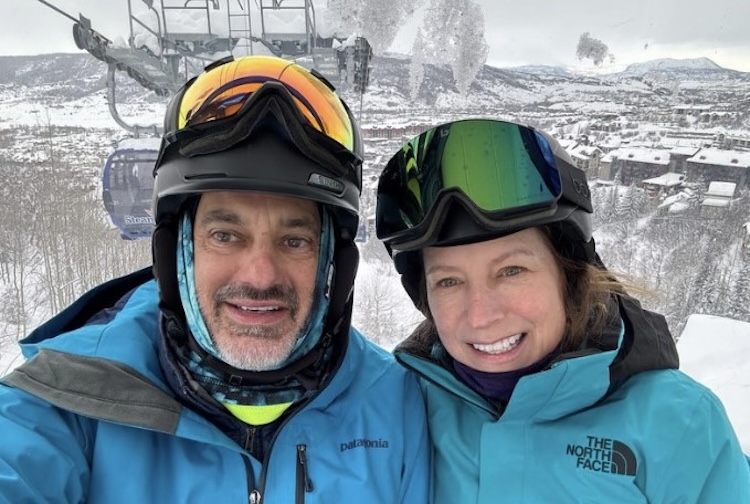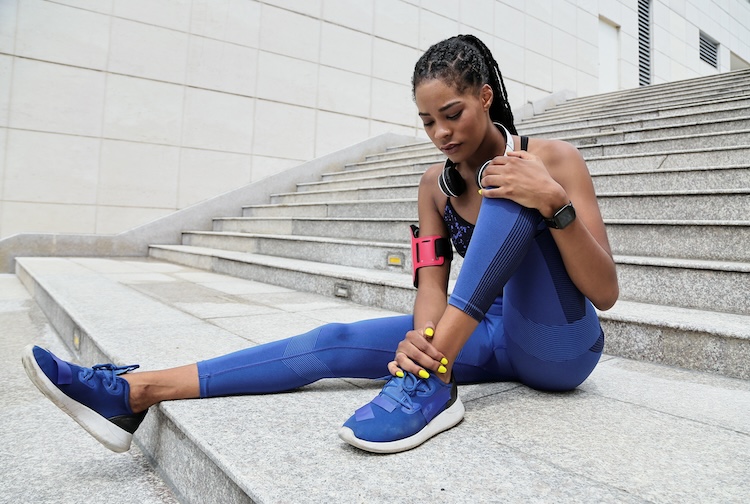
You’ve been exposed to someone with COVID-19: What should you do?
Should you be tested? What kind of test? What are the odds that you got it, too?
September 03, 2021 Photo: Getty Images
Photo: Getty Images
Updated September 3, 2021. Please note that this content is accurate as of the update date.
The phone rings. It’s your friend. She says she tested positive for COVID-19 — and you spent time together just the other day. What should you do?
Dr. Michael Stevens, an infectious disease specialist at VCU Health, explains what to do if a friend, family member or contact tracer tells you that you may be infected.
 Do I need to be tested, or can I wait and see if I get symptoms?
Do I need to be tested, or can I wait and see if I get symptoms?
If you were within 6 feet of your friend for a total of 15 minutes or more over a 24-hour period, or you had close contact with her secretions — for instance, you were coughed or sneezed on, you shared drinking glasses or utensils, you kissed, etc. — the Virginia Department of Health (VDH) recommends that you stay at home (self-quarantine) for 14 days since you last saw her and practice social distancing, staying at least 6 feet away from other people in your household.
The safest thing to do is to quarantine for the full 14 days. However, for people who cannot do this, there is an option to leave quarantine early with a negative PCR or antigen test performed on or after Day 5 following exposure.
What if I don’t get tested?
Stay home (self-quarantine) and social distance for 14 days since your last contact with your friend.
Should I call my doctor?
If you develop symptoms, call your doctor for advice. Even if you don’t have symptoms, your doctor can offer guidance on what to do.
Where can I get the test?
Many places in the community offer testing, such as pharmacies, urgent care centers and some non-profit health care services. Do not go to the hospital emergency room. The emergency room is for true medical emergencies.
Should I get the rapid test, the PCR test or the antibody test? What’s the difference?
The PCR test is the most accurate test for detecting active infection. The rapid (antigen) test may be less accurate, and false positive results can occur. However, in many places these tests produce results more quickly. The antibody test can only tell if you previously had the infection. It won’t tell you whether you currently have COVID-19. Your doctor can help you decide which test is right for you.
Do I need to be tested immediately, or should I wait a few days?
If you have symptoms, isolate per VDH guidance and get tested right away.
Is the COVID test free?
COVID-19 tests are available at no cost throughout the U.S. Still, it’s wise to discuss this wherever you seek testing to find out if any charges might apply.
Do I need to tell my boss or anyone else that I’ve been exposed to someone with COVID-19?
Follow VDH advice for when to quarantine. Let your boss know. If you’ve spent significant time in close contact with anyone else (as defined above) since being exposed, you should also let them know.
I tested negative. Do I still need to self-quarantine?
It depends on when you tested. Per VDH, asymptomatic unvaccinated people with a negative PCR or antigen test performed on or after Day 5 of last exposure can leave quarantine early, although a full 14 days of quarantine is preferred. See VDH advice.
Per VDH, if you are fully vaccinated against COVID-19, are asymptomatic and have a normal immune system, you do not need to quarantine. However, you should be tested 3-5 days after your last exposure and wear a mask in indoor public settings for 14 days or until your test is negative.
If I self-quarantine, can I go for walks in my neighborhood, just by myself?
No. Stay at home, isolated, as much as possible. You can go outside on your own property if you can reliably stay at least 6 feet away from other people. When in doubt about whether a potential activity is safe or not, call your local health department for advice.
What if someone in my household was exposed? Do I stay away from them until they test negative? Do I stay away from them for two weeks? What if it’s your child?
Try to socially isolate as much as possible. This means staying at least 6 feet away, if you can. If your child was exposed, this may not be possible. In that case, consider wearing masks as much as possible. Everyone in your household should practice good hand hygiene. Wash your hands often, with soap and water. Clean high-touch household surfaces frequently. These include faucets and kitchen countertops, light switches, doorknobs and the TV remote. Everyone should monitor for symptoms and get tested if any symptoms arise. Please follow the advice from VDH about quarantining.
If I self-quarantine, how will I get groceries?
Many grocery stores offer home delivery. If this is not an option and food access is an issue, call your local health department. They can help identify services to help you gain access to food during quarantine.
Should I tell the people I visited with before I knew I’d been exposed to someone with COVID-19? Do they need to self-quarantine or be tested?
Let people know they might have been exposed if you spent 15 minutes or more within 6 feet of them within a 24-hour period, or if you shared secretions, as previously mentioned. If you are asymptomatic and have not been diagnosed with COVID-19, VDH does not recommend that they self-quarantine or get tested, but they should practice careful hand hygiene, clean surfaces at home frequently and seek testing if they develop symptoms.
What are the chances that I got COVID-19 from my friend?
It’s hard to say. It all depends on the degree and duration of exposure. SARS-CoV-2, the virus that causes COVID-19, is highly contagious. The delta variant (the predominant form of the virus now circulating in Virginia) is about twice as infectious as the original strain of the virus.
If I did get COVID-19 from my friend, what are the chances that I passed it on before I knew I had it? Does it matter how much time I spent with my friend?
It does matter how much time you spent with your friend. It’s hard to estimate the risk of your having passed the virus on to others. Some people with COVID-19 have little to no symptoms. Anyone who is not currently infected with COVID-19 and who is unvaccinated should get vaccinated as soon as possible. People should also wear masks when outside their home, especially when indoors, and try to stay at least 6 feet away from others. These things will help reduce spreading the infection and will help keep you and others safe.
My friend developed only mild symptoms. Will my symptoms be mild, too?
Everyone is different. Your friend’s symptoms won’t predict how the virus will affect you.
If I test positive, will I be immune from COVID-19 – or can I get it again? Will I be able to go out without a face mask? Will I still have to social distance?
Although reinfection appears rare at this point, it has been reported. At this time we don’t know how often, or for how long, infection will lead to immunity. Importantly, vaccination appears to provide benefits in terms of protection even in people with documented infection. Even if you have been infected, once out of quarantine, if you are unvaccinated you should get vaccinated. You should also continue to wear a face mask when outside your house, especially when indoors, and try to stay at least 6 feet away from others in public settings.
If no one has told me they tested positive for COVID-19, but I develop symptoms of COVID-19, such as cold, flu or allergy symptoms, should I be tested for COVID-19 or wait it out? Should I tell people I visited with recently?
It’s not possible to differentiate COVID-19 from cold, flu or allergy symptoms. Follow VDH guidance on quarantining and call your doctor for advice.
For more information on COVID-19, please visit our COVID-19 news site. For more information on this particular topic, visit the Virginia Department of Health.
For more information
For more information
For a variety of news and information on COVID-19 and how VCU Health is keeping you safe, please visit our COVID-19 News Center.


